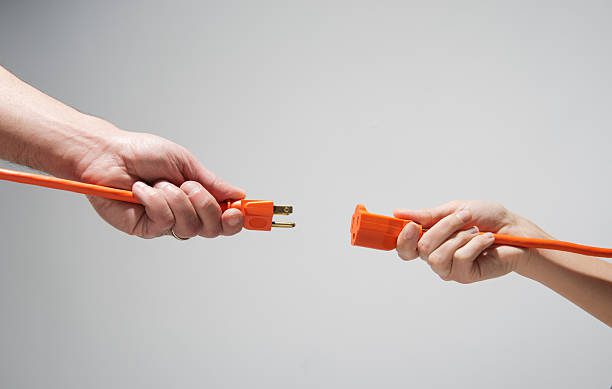Want to find out the types of relationship compatibility? You are in the right place. It is important you learn about relationship compatibility and its types so that you can be sure what criteria you consider important in your choice of a partner, and what criteria you are not strict about.
First, let’s see what relationship compatibility is.
What is Relationship Compatibility?

Compatibility in a relationship means that both partners understand and accept each other’s life philosophy and goals, as well as genuinely enjoy being around each other without feeling preoccupied with what they feel needs to change within their partner.
Based on that definition, several types of relationship compatibility can be inferred. When it comes to compatibility, people look at physical appearances, emotional connections, similarities of interests, and so on.
Several studies have observed many of the criteria used in determining if two people are compatible with each other or not. The results showed that people who had more similarities, or what you would otherwise refer to as compatibility, often share a stronger union in their relationship.
Relationship compatibility is many things relating to commonness and similarities between two people but what it is not is expecting two people to be perfectly matched with no differences absolutely.
Types of Relationship Compatibility
In this post, you are going to see six types of relationship compatibility. There could be more, depending on the criteria being considered but these six types of relationship compatibility would suffice.
- Physical compatibility
- Social compatibility
- Emotional compatibility
- Intellectual compatibility
- Spiritual compatibility
- Medical compatibility
Let’s talk about them briefly.
1. Physical Compatibility
This type of relationship compatibility refers to how physically attracted you are to your partner. It is the type of compatibility that you might describe as the feeling of chemistry between the partners.
Physical compatibility is based on physical attributes and qualities that the partners see in each other. These might include beauty, height, complexion, and behaviours, just to mention a few. Physical compatibility is a very important type of compatibility for relationships but it carries a rather small weight in determining how compatible partners are.
2. Social Compatibility
Social compatibility is the type of compatibility in relationships where the social interests of the partners align. It is described as the matching or complementing of one’s social preferences by the other partner.
For example, you might have a partner who likes social events and activities, but you are fiercely opposed to such. This in itself is a flaw in your compatibility with each other. But that does not mean opposite personalities like that example never match.
Very many individuals who have identified themselves to be reserved, introverted, and quiet have often declared themselves to be more interested in lively, sociable, and extroverted personalities. Thus the matter of social compatibility is purely based on individual preferences, and again, it does not carry an absolute weight in determining the level of shared compatibility.
Other criteria that may also feature under social compatibility include race and culture, socioeconomic backgrounds (rich and poor), etc.
3. Emotional Compatibility
Emotional compatibility is described by how well the partners are able to manage and understand each other’s emotional responses. Some people have a withdrawal response when their emotions are negatively triggered. Others have a high-rising response where they might go into outbursts of negative energies.
This type of relationship compatibility deals with how well partners manage emotional responses from each other. For example, if your partner is one that responds by withdrawing, it might be important that you are the type that can subtly approach them to find out how to resolve the issues peaceably.
Otherwise, if your partner is one that flares up when they are angry, it might be pertinent that you are one that understands and patiently calm them down while working ways for settlement.
This type of relationship compatibility is very important for every relationship. Thankfully, it can be developed.
4. Intellectual Compatibility
Intellectual compatibility is the type of relationship compatibility that has to do with how well the partners connect with each other on an intellectual basis. This reflects in the flow of thoughts and ideas between them when they engage in conversations or discussions.
Everybody wants someone who connects with them intellectually in order to make the union more fun and lively. Hence, intellectual compatibility is very important for relationships and marriages.
Intellectual compatibility may be erroneously described as a similarity in occupations or industries. That is; both partners belonging to the same field of occupation to be able to better understand each other. But that is not the case even though occupational similarity can determine intellectual compatibility to a large extent.
5. Spiritual Compatibility
Spiritual compatibility has to do with how well the religious beliefs of the partners align together. Religion is one aspect of life that is central to how we live, interact with other people, and do the things we do. Therefore, it is important that relationship partners share common religious beliefs and values.
Having a spiritual connection reflects a deep unity of the partner’s life’s visions and passions, and what their definition of a “fulfilled life” is.
Spiritual compatibility also includes things like mythicism, vegetarianism, atheism, agnosticism, and other spirituality or extra-terrestrial beliefs.
6. Medical Compatibility
You may also refer to this type of compatibility as biological compatibility. Medical or biological compatibility is a type of relationship compatibility that determines the fitness of partners to marry. This is important if there are plans to take the relationship to the next level of marriage, which of course, is the ultimate goal of most relationships.
Medical compatibility is assessed through genetic testing. Special tests of medical compatibility include genotype tests in places where the sickle-cell trait is predominant, tests for genetic diseases like Tay-Sachs disease, Phenylketonuria, etc.
Medical compatibility, as described, may not directly affect the partners but the impact of the result of incompatibility on the children can affect the stability and longevity of the relationship.
Final words
I recently rewatched the 1988 romantic comedy by Eddie Murphy, Coming to America, and its sequel released in 2021. I found something fascinating about relationship compatibility in the movie. Prince Hakeem decided to leave his betrothed charming woman who wants to be perfectly compatible with him, to meet his beautiful bride in America.
The biological/medical compatibility discussed above is very important, especially because it can affect the offspring very significantly. But asides from this, it is important you don’t pursue compatibility with the goal of achieving a hundred percent compatibility, or with the hopes of finding someone who succumbs to all your wishes, wants, and desires.

















